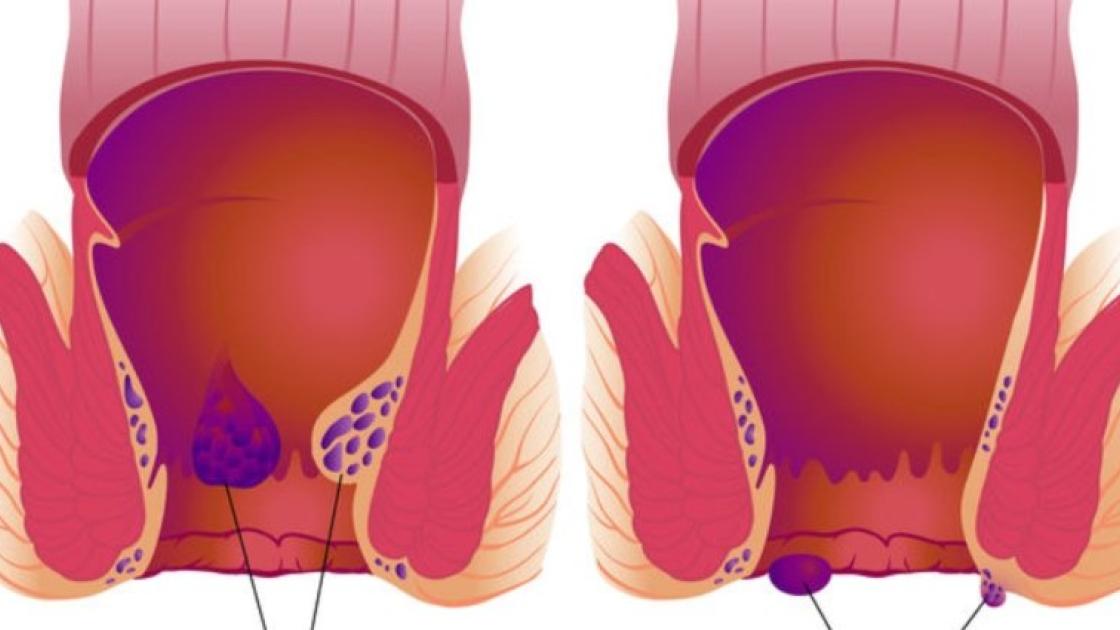
Understanding hemorrhoids: what they are and how they're treated
Did you know 1 in 20 people in the United States develop hemorrhoids, and that roughly half of all people over the age of 50 have them? Despite being so common, many people are embarrassed to talk to their doctors about hemorrhoids, even though they are treatable. Indeed, hemorrhoids should be treated in some cases to alleviate symptoms and avoid rare but possible complications.
SIU Medicine is home to a team of colon and rectal specialists who have access to the latest advances and research in gastrointestinal care. Our academic medicine facility bridges the gap between evidence-based practice and real-world application, and we'd be happy to help you or your loved one get the discreet and personalized care you need to find relief from hemorrhoids.
What are hemorrhoids?
Hemorrhoids are swollen and inflamed or irritated veins in and around the anus or inside the rectum. You may have hemorrhoids and not even know it. But the most common signs and symptoms of hemorrhoids include:
- Bright red blood on your toilet paper when you wipe (a sign of bleeding from the rectum), which is usually painless
- Swelling, pain and/or itchiness around your anal area
Hemorrhoids can be either external, meaning they're located beneath the skin around your anus, or internal, meaning they're located inside the rectum.
How do hemorrhoids occur?
The most common reason hemorrhoids develop is straining to defecate or pushing very hard while you try to poop. This can increase pressure around the veins in and around your anus and rectum, causing them to stretch and bulge. Other factors that may contribute to the development of hemorrhoids include:
- Sitting on the toilet for a long time
- Chronic diarrhea, constipation or other gastrointestinal disorders
- Obesity
- Pregnancy
- Anal intercourse
- Frequent heavy lifting
- Low-fiber diet
Hemorrhoids can affect people of all ages, but they're more likely to develop in people as they get older.
How our team at SIU Medicine diagnoses and treats hemorrhoids
Hemorrhoids may cause problems if they are left untreated. For example, an internal hemorrhoid may push out into the opening of a person's anus, causing irritation. Alternatively, an external hemorrhoid may develop a blood clot that can lead to intense pain, inflammation, swelling and the sensation of a hard lump near the anal area. In rare cases, a person may develop anemia (low red blood cells) due to excessive bleeding from a hemorrhoid.
Keep in mind that bleeding from the rectum or anus isn't always caused by a hemorrhoid, so any sign of blood while defecating should be checked out by your doctor.
If you're concerned about hemorrhoids, we encourage you to connect with our colon and rectal specialists at SIU Medicine. We can diagnose hemorrhoids on a physical exam in a simple office visit. We may also recommend further interventions like a colonoscopy to rule out other conditions (especially if you have risk factors for things like colon cancer).
We can then offer individualized treatment that will help you find relief from your hemorrhoid symptoms. Depending on the severity and location of your hemorrhoids, we may recommend one or all of the following interventions:
- Over-the-counter medications to soften stool
- Lifestyle changes, including improved bowel habits, regular exercise and weight management
- Dietary changes, including increased fiber intake and fluid intake
- Medical procedures to remove painful hemorrhoids
Hurt by hemorrhoids?
When it comes to hemorrhoids, don't let anything stop you from getting the relief you deserve. Contact SIU Medicine at 217-545-8000 to schedule a consultation with one of our gastrointestinal, rectal and colon specialists today.




